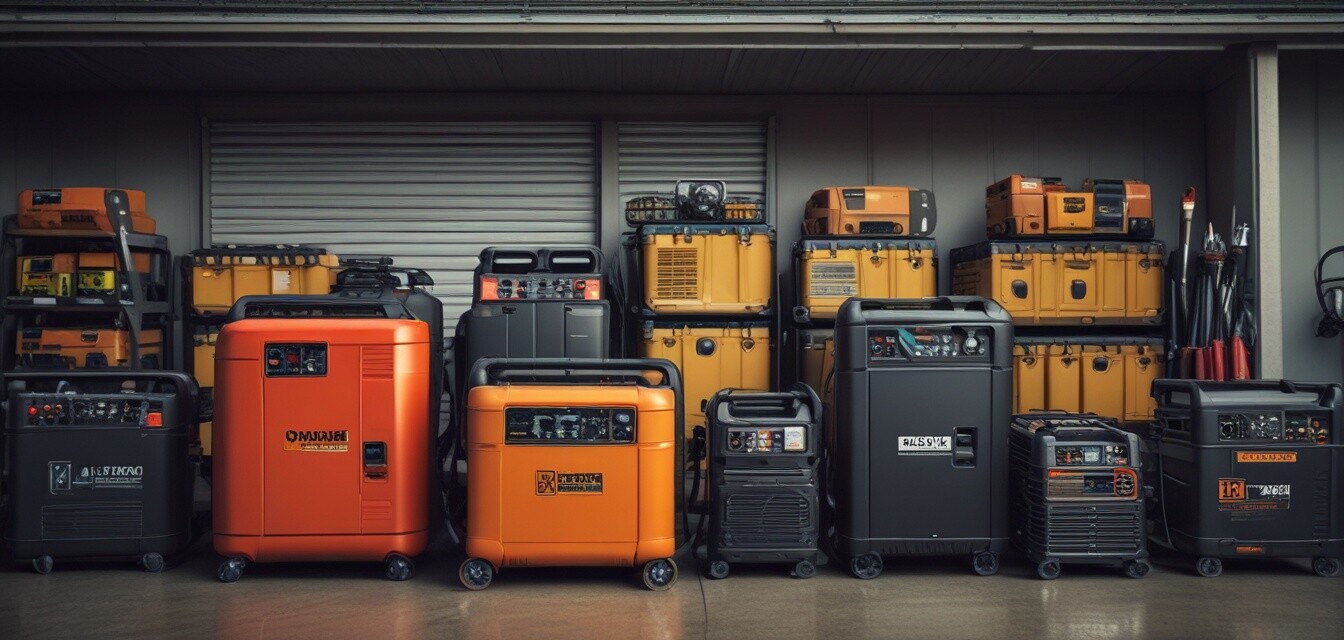
Understanding the Importance of Maintenance for Generators
Key Takeaways
- Regular maintenance ensures reliable generator performance during emergencies.
- Routine checks can extend the lifespan of your generator.
- Maintenance includes checking fuel levels, oil changes, and battery conditions.
- Understanding common issues and upkeep can save you time and money.
- Keeping records of maintenance can aid in troubleshooting and warranty claims.
The reliability of portable generators can be a crucial factor during power outages or natural disasters. Regular maintenance is not just advisable—it is essential. Neglecting this area could leave you without power when you need it most. In this article, we’ll dive deeper into why maintenance is so important for portable generators and how you can ensure they remain in peak condition.
Why Maintenance Matters
Generators are machines designed to provide a vital service; therefore, their functionality depends on proper upkeep. Here are some reasons why maintenance matters:
- Performance: A well-maintained generator performs better and operates more efficiently.
- Durability: Regular checks help extend the lifespan of the generator.
- Cost-Effective: Preventative maintenance can save on costly repair bills in the long run.
- Reliability: Knowing your generator is ready to go can give peace of mind during emergencies.
Common Issues That Arise from Poor Maintenance
Failing to keep up with maintenance can lead to a variety of problems:
- Fuel leaks
- Corroded battery connections
- Dirty air filters
- Worn-out spark plugs
Routine Maintenance Checklist
Here are essential maintenance tasks you should complete regularly:
| Maintenance Task | Frequency | Description |
|---|---|---|
| Check oil level | Every use | Ensure the oil is at the appropriate level for optimal engine performance. |
| Inspect fuel system | Monthly | Check for fuel leaks, inspect filters, and ensure the fuel is fresh. |
| Test battery | Monthly | Check the battery’s charge and clean any corrosion at the terminals. |
| Change air filter | Every 100 hours or annually | Replace as needed to ensure clean airflow to the engine. |
| Change spark plug | Every 100 hours or annually | Replace to maintain efficient engine performance. |
Tips for Effective Maintenance
Beginner Tips
- Familiarize yourself with the owner’s manual for specific maintenance instructions.
- Keep a logbook of all maintenance activities to track the history.
- Consider investing in professional maintenance services periodically.
- Clean the exterior of the generator regularly to prevent debris buildup.
- Always run your generator monthly for 30 minutes to keep it operational.
Conclusion
Keeping your portable generator well-maintained is not just a good practice; it is a necessary step to ensure your safety and preparedness during power outages. By following routine checks and upkeep, you can be confident that your generator will perform when you need it most. For additional information, visit our comprehensive guides on Preparedness Tips and other maintenance strategies that can enhance your emergency planning. Don't wait until disaster strikes—make generator maintenance a priority today!
Pros
- Increased reliability during emergencies.
- Extended lifespan of your generator.
- Cost savings from preventing major repairs.
- Peace of mind knowing your generator is ready.
Cons
- Regular upkeep requires time and effort.
- May incur costs for professional maintenance services.
- Some maintenance tasks may be complex for beginners.
